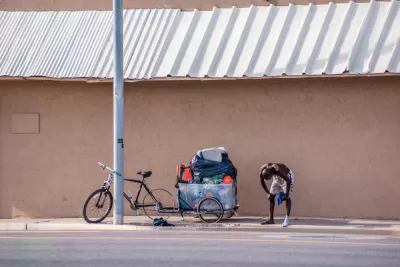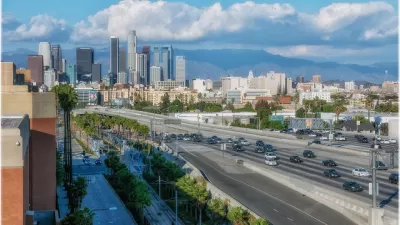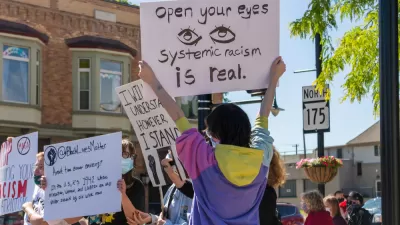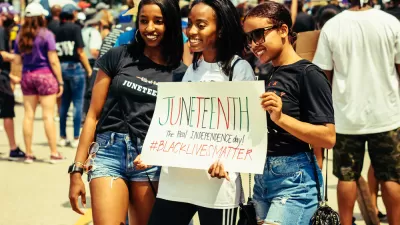The people living in urban heat islands are much more likely to be inhabited by low-income people of color, and the roots of the environmental justice issue can be found in planning history.

Kale Williams shares news of a new study that connects urban heat islands (areas where temperatures are exacerbated by the built environment) to a history of racist land use regulations.
Now, a new study from Portland State University is showing, for the first time, that areas prone to excessive heat are disproportionately populated by low-income communities and people of color due to racist housing policies that stretch back more than a century.
Williams summarizes more of the study's findings:
Nearly every city included in the study saw higher temperatures in neighborhoods that were historically subject to discriminatory housing policies, with poorer areas seeing averages temperatures about five degrees higher than their wealthier counterparts. And, of the 108 urban areas analyzed, Portland came in with the worst temperature discrepancy between rich and poor, a difference of almost 13 degrees.
Jeremy S. Huffman, Vivek Shandas, and Nicholas Pendleton wrote the study, which was published in the Climate journal.

Alabama: Trump Terminates Settlements for Black Communities Harmed By Raw Sewage
Trump deemed the landmark civil rights agreement “illegal DEI and environmental justice policy.”

Study: Maui’s Plan to Convert Vacation Rentals to Long-Term Housing Could Cause Nearly $1 Billion Economic Loss
The plan would reduce visitor accommodation by 25% resulting in 1,900 jobs lost.

Planetizen Federal Action Tracker
A weekly monitor of how Trump’s orders and actions are impacting planners and planning in America.

Baltimore Ordered to Improve Sidewalk Accessibility
The city is one of many to face lawsuits for failing to comply with the Americans with Disabilities Act.

This Toronto Suburb Has More Bus Riders Than Columbus, Ohio
Brampton, Ontario used gradual improvements in service to prove that if you build it, they will ride.

Paris Bike Boom Leads to Steep Drop in Air Pollution
The French city’s air quality has improved dramatically in the past 20 years, coinciding with a growth in cycling.
Urban Design for Planners 1: Software Tools
This six-course series explores essential urban design concepts using open source software and equips planners with the tools they need to participate fully in the urban design process.
Planning for Universal Design
Learn the tools for implementing Universal Design in planning regulations.
Smith Gee Studio
Alamo Area Metropolitan Planning Organization
City of Santa Clarita
Institute for Housing and Urban Development Studies (IHS)
City of Grandview
Harvard GSD Executive Education
Toledo-Lucas County Plan Commissions
Salt Lake City
NYU Wagner Graduate School of Public Service





























